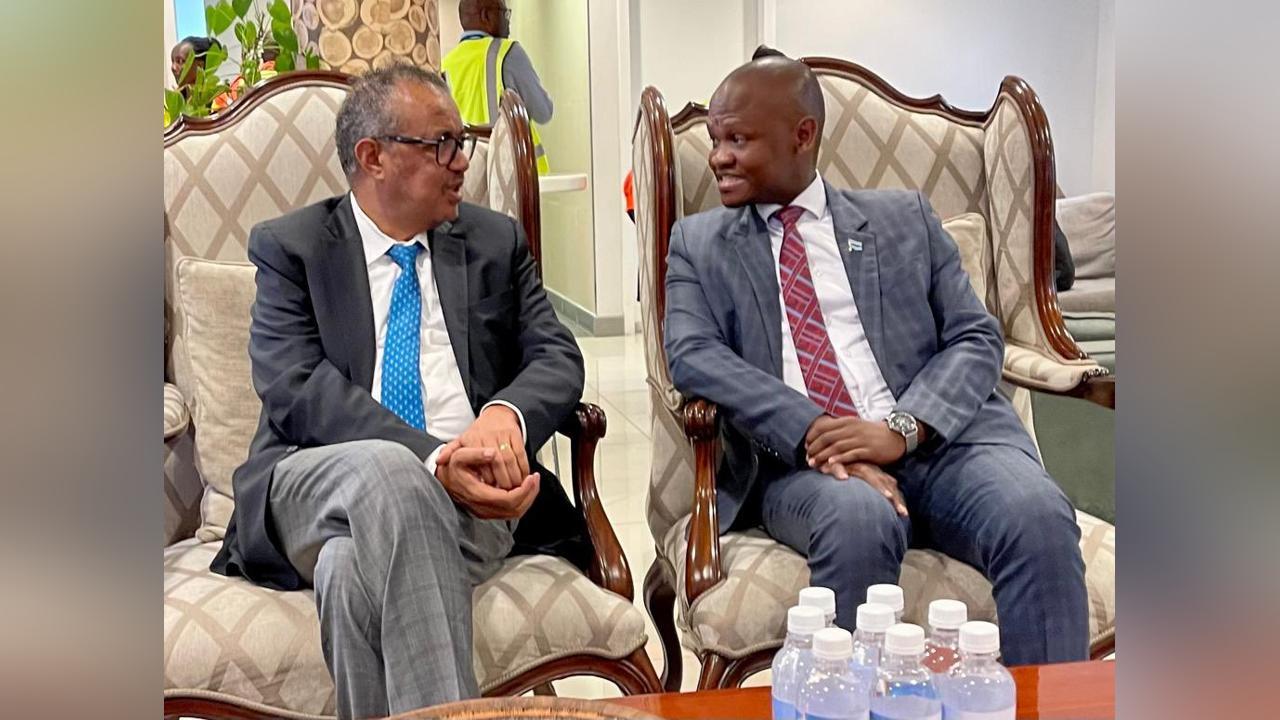Africa-Press – Botswana. There is an urgent need for African-led research on climate change and health that would support the development of innovative adaptation interventions and protect the most vulnerable populations.
This was said by Minister of Health, Dr Edwin Dikoloti during the 2nd meeting of Climate and Health Network in Africa for Collaboration and Engagement (CHANCE) on Thursday in Gaborone.
Dr Dikoloti said climate change has become a global health crisis that threatened the well-being of vulnerable populations particularly in the African region, adding that it has become important for African countries to build resilience to mitigate the impact of climate change on health.
He pointed out that according to the 6th Intergovernmental Panel on Climate Change (IPCC) Report, global warming was on the increase, with the world currently at 1.2 degrees celsius warmer than in the previous century, and a projected increase to 1.5 degrees Celsius by 2030.
He highlighted that despite being the least contributor of greenhouse gas emissions, Africa was disproportionately affected by climate change and had limited resources to adapt to the impact of climate change on the environment, livelihoods, and health.
He underscored that Botswana recognised the need for Africa to contribute towards further reduction of carbon emissions.
He hailed the CHANCE network conference, saying it would harness synergies towards supporting climate and health research, policy development and adaptation as well as mitigation interventions.
He said the discussion would help advance the African region’s response to climate challenges.
He assured the gathering that the ministry of health would continue to be a strategic ally and support the CHANCE network.
Dr Dikoloti said the ministry appreciated the efforts by CHANCE network to convene an important gathering in Botswana
The WHO African Director, Dr Matshidiso Moeti admitted that Africa was witnessing various extreme weather events including droughts, floods, hurricanes and heatwaves that harm human health.
Dr Moeti said in Southern Africa, the cyclone season caused extensive flooding and damage, adding that it raised the risk of waterborne diseases, worsening the cholera outbreaks in several countries of the sub-region.
She pointed out that across the greater Africa, a prolonged drought that continued to claim lives, has displaced millions and pushed them to the brink of famine amid widespread malnutrition.
Further, she observed that in West Africa, climate change intermingles with political tensions, violent conflicts and complex humanitarian emergencies that must be addressed with integrated responses.
She said there was strong evidence that climate change affects the health and wellbeing of all people and that vulnerable populations were most hit.
Dr Moeti advocated for strengthening of scientific evidence and advocacy to secure climate funding and support adaptation, mitigation and resilience in health and associated sectors. European Union’s Ambassador to Botswana, Ms Petra Pereyra said climate change was real threat which required a collective response, adding that the EU and all development partners need to stand together against climate change, “as there was not planet B to escape to”.
Ms Pereyra highlighted that the EU and its leadership has identified climate change as a top priority for EU, promising to deliver a European Green Deal to make Europe the first climate-neutral continent by 2050 which would also cover the rest of the world.
She said tackling climate change and promoting Green Transformation was top priority for EU in Africa.
Ms Pereyra stated that the CHANCE network was the perfect example of how to build more resilient health systems that can help make communities more resilient to the impacts of climate change.
The CHANCE network chairperson, Dr Vincent Pagiwa, said the conference was an opportunity to build local, regional and global networks with a common vision of addressing climate change and health in Africa.
Dr Pagiwa pointed out that the aim of CHANCE conference was to facilitate interactions between policy makers from African countries, representatives from key health organisations, donors and other important stakeholders.
For More News And Analysis About Botswana Follow Africa-Press






